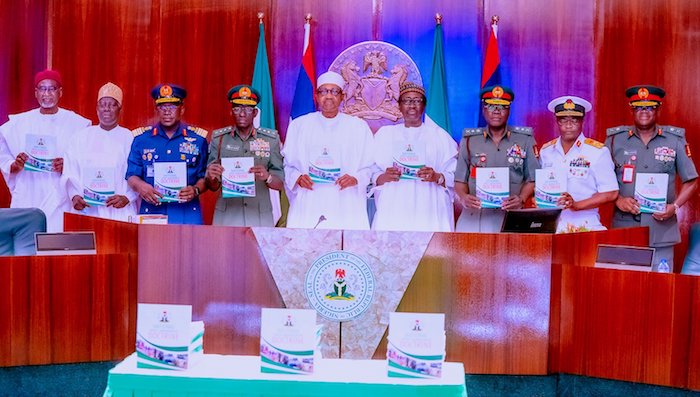Nigerian President Muhammadu Buhari has stated that the country’s present security difficulties have gone beyond the capacity of the government’s deployment of security services and the country’s resources.
While launching the National Crisis Management Doctrine (NCMD) yesterday at the State House in Abuja, the President also highlighted that Nigerians’ anxieties had grown as the country’s security situation had evolved with the rise of the Boko Haram terror group and other forms of criminal activity.
He said, “The emergence of the Boko Haram terrorist group, along with bandits and kidnappers in Nigeria, significantly changed the security situation in the country, leaving panic in the minds of the populace.
These threats, along with others, put a strain on the United States’ security agencies, resources, and infrastructure.
However, he believed that the newly established NCMD would improve national security by filling the void left by the widespread deployment of security services by promoting cooperation between government agencies (MDAs).
He claimed that the Office of the National Security Adviser’s (ONSA) and the relevant MDAs had worked together to create the NCMD, which would lead to increased success in responding to national crises.
The President gave high praise to National Security Adviser Major-General Babagana Monguno (rtd), his staff, and the members of the working group from various responder MDAs for their outstanding work in developing the Doctrine.
He hailed the accomplishment as a major step toward the goal of coordinated, effective, and efficient national crisis management.
The President praised ONSA for its involvement in crisis response coordination, saying, “This shows the renewed promise and dedication of this administration to handle the situation in the country.”
President Buhari thanked the United Kingdom and the United States for their contributions to the development of the Buhari Doctrine and for their support, respectively, and he urged them to maintain their partnership.
The President of Nigeria recalled that when his administration began, the country was plagued by a wide variety of security threats, including terrorism, kidnapping, armed banditry, attacks by ethnic militias, theft of oil, rape, gun trafficking, and other activities coming from violent extremism.
The National Counter Terrorism Strategy (NACTEST), which I adopted in August 2016, was updated in light of the changing nature of these crises by the Office of the National Security Adviser.
Included in this strategy are “work streams” such as “preparing and implementing strands that seek to mitigate the impact of terrorist attacks by building resilience and redundancies to ensure business continuity; and a framework for the mobilization of coordinated cross-government efforts.
It is encouraging to hear that “the Office of the National Security Adviser has not slowed down in its efforts to implement the NACTEST by coordinating relevant Ministries, Departments, and Agencies to develop the National Crisis Management Doctrine,” as he put it.
The NSA director had earlier stated that the Doctrine’s development had begun in 2014, but that it had been given new impetus after the President had adopted the updated NACTEST, which has five work streams: prevention, protection, identification, preparation, and implementation.
Monguno continued by saying that the NCMD, which is a part of the NACTEST, completes the “Prepare” and “Implement” work streams.
“The Doctrine provides a precise framework for national crisis response, defining how the different key MDAs should interact at the strategic, operational, and tactical levels,” he said.
According to the authors, “the general principles laid forth inside the NCMD can be applied to manage both harmful threats and civil emergencies.”
